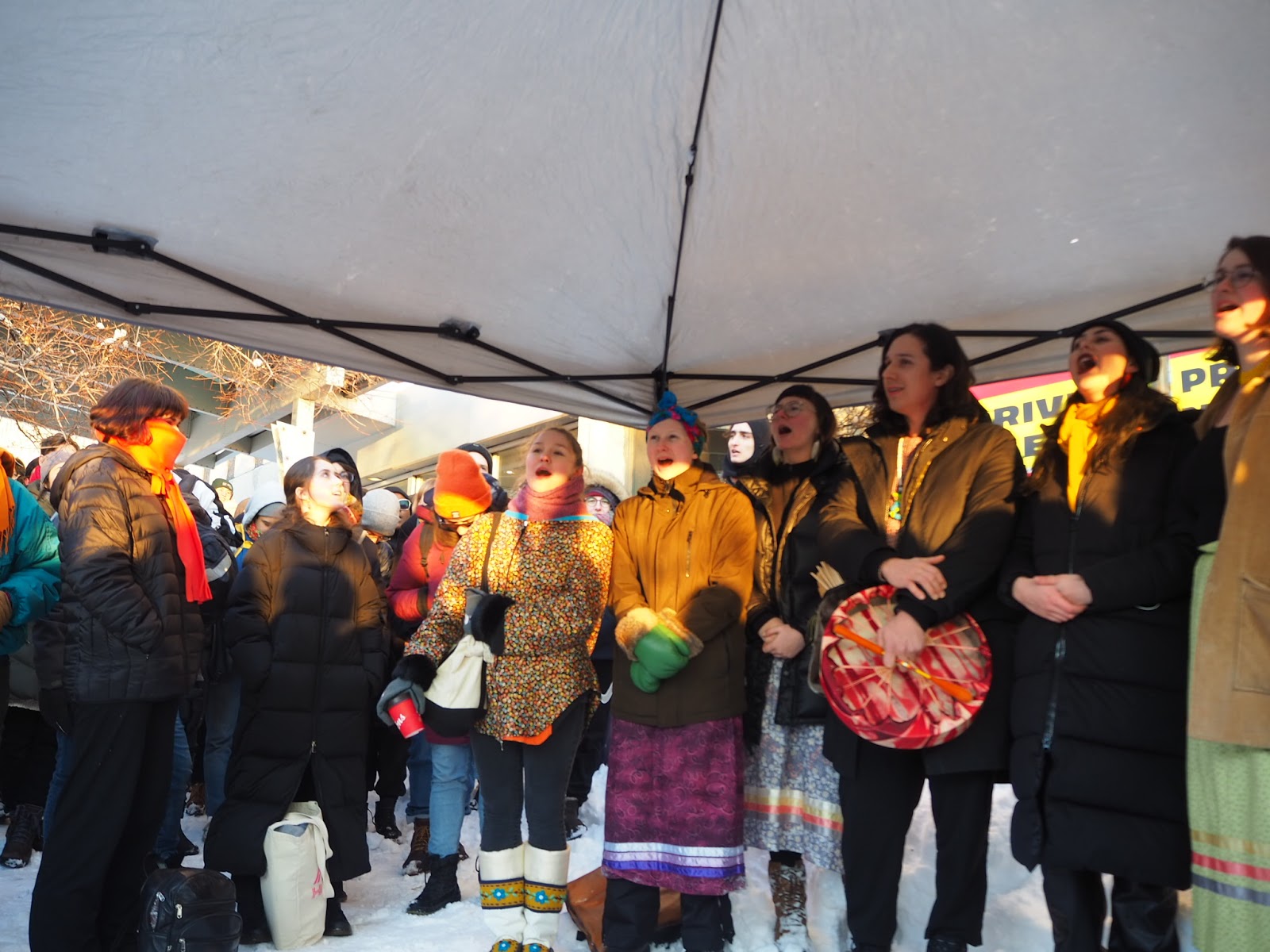Over 300 people packed the entrance of Prime Minister Justin Trudeau’s Papineau constituency office to protest against the Royal Canadian Mounted Police (RCMP) who invaded northern British Columbia’s (BC) Wet’suwet’en territory. Gathered in foot-deep snow on Feb. 10, Indigenous youth and allies chanted and held signs demanding that the RCMP retreat from Wet’suwet’en territory and urged Trudeau to take action.
Nakuset, the director of the Montreal Native Women’s shelter, recounted her own experience with the RCMP as an Indigenous woman. She told protestors that the fight against the RCMP invading Wet’suwet’en is part of a greater struggle between police forces and Indigenous communities.
“The RCMP were the first ones who came and took the children away to residential school,” Nakuset said. “Now they’re blocking [and] taking our people to jail.”
Nakuset also highlighted the need for the media to pay attention to the movements as a form of peaceful opposition to pipeline expansion projects in the region.
“Like our people, we have been pushed out of sight [and] out of mind […] but if we have more media out there and more people become outraged, this is not going to continue,” Nakuset said. “We know how to take care of the land [and] that there’s a reason why we don’t want the pipelines. It is going to be disastrous. And I love the fact that everyone keeps coming up and voicing their opinion […] because it’s a reflection that it’s not just those big corporations that are trying to make money off of our land.”
Alex G, a Mi’kmaq McGill alumnus, led the crowd with traditional Indigenous songs. He feels that his songs act as both a form of healing for his community and a symbol of Indigenous resilience.
“These [protests] are to generate action,” Alex said. “It is a reminder to the government that here is a group of people, as Indigenous people especially who have agreed to the United Nations’ Declaration of Indigenous rights and here [they] are forcefully removing us from our communities, from our territories.”
Protest organizer Aneeka Anderson, U2 Arts, believes that the recent momentum gathered by the Wet’suwet’en land defenders and previous sit-ins at Trudeau’s constituency office help explain the protest’s high turnout.
“I was really blown away,” Anderson said. “We’ve been hurting as a community during the weekend […] but I think we all took a deep breath after that demonstration because it went so well and we felt so supported. The crowd was ready to cheer with us and to make sure we were heard from those inside the office.”
Anderson noted the numerous police officers surrounding the demonstration. She believes that their presence was more to intimidate protestors than to assure their safety.
“It felt like we were being surveilled,” Anderson said. “I think luckily the demonstration went so well that we completely forgot they were there, and that speaks to the power of [the] space that was created.”
Anderson pointed out Trudeau’s late response to the protests across Canada, claiming that it demonstrates the federal government’s lack of concern for the issue.
“It’s very shameful,” Anderson said. “[Trudeau] is abroad speaking about wanting to improve human rights internationally when there are huge injustices and human rights violations going on [currently] in the Wet’suwet’en territory.”









